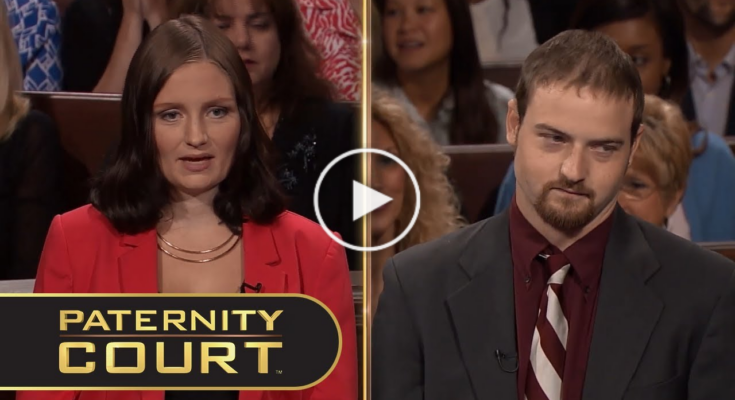Paternity disputes often lead to legal battles, emotional turmoil, and uncertainty about a child’s true parentage. This article delves into the compelling case of Hilburn v. Barnes, exploring the significance of DNA testing in resolving paternity issues and the profound life lessons that emerged from the courtroom drama.
DNA Diagnostics played a pivotal role in Hilburn v. Barnes, providing concrete evidence to determine the biological father of 10-month-old Serea Barnes. The court’s reliance on DNA results emphasizes the accuracy and reliability of modern DNA testing in paternity disputes. This scientific approach brings clarity to complex situations, allowing for objective conclusions.
“These results were prepared by DNA Diagnostics, and they read as follows. In the case of Hilburn v. Barnes, pertaining to whether Shawn Barnes is the biological father of 10-month-old Serea Barnes, it has been determined by this court… Mr. Barnes… You are… Not Serea’s father.” – Judge Lake
The revelation of the DNA test results brought intense emotions to the surface. Mr. Barnes, having developed a strong father-daughter bond with Serea, faced profound disappointment and heartbreak. The court empathized with his pain, understanding the depth of his attachment to the child.
“I knew this man loved her. And I wanted him to be her father, but the DNA says otherwise. I’m just a judge. DNA is the jury.” – Judge Lake
The case of Hilburn v. Barnes revolves around a love triangle that contributed to the uncertainty surrounding Serea’s paternity. Ms. Hilburn admitted to being involved with two men simultaneously, leading to questions about who the biological father could be. The consequences of such tangled relationships created a challenging situation for all parties involved.
Ms. Hilburn, who admitted to having feelings for both men, found herself embroiled in a web of deceit and dishonesty. The court recognized the damaging effects of this love triangle and urged her to learn from her mistakes and prioritize the welfare of her children.
“You just out here lying. You said about 10 times today, ‘Cause I lied.’ ‘Cause he’s dumb enough to believe my lies.’ ‘Cause I lie… He says you lie, you out here lying all over the place. Yes. Now it’s time for the truth.” – Judge Lake
As the court addressed the ramifications of the test results, Ms. Hilburn’s past actions came under scrutiny. The judge emphasized the importance of taking responsibility for one’s actions and learning from past mistakes, urging both parties to break negative cycles for the sake of their children’s future.
While Mr. Barnes had hoped to be Serea’s biological father, the DNA results dashed his expectations. Despite the emotional pain, the judge encouraged him to remain involved in Serea’s life, emphasizing the importance of emotional connection and commitment to a child’s well-being.
“If you truly feel like it’s best that you step away… She’s young enough now where she can recover. But now we have to figure out, are you the father of the unborn child?” – Judge Lake
The case of Hilburn v. Barnes serves as a powerful reminder of the significance of transparent communication and responsible parenting. The court’s ruling encourages Mr. Barnes to remain involved in Serea’s life, regardless of the DNA results, highlighting the importance of emotional connection and commitment to a child’s well-being.
Ms. Hilburn’s choices also serve as a cautionary tale, showcasing the far-reaching consequences of dishonesty and infidelity in relationships. The court’s emphasis on accountability and learning from past mistakes could potentially lead to a positive transformation in her life.
The case of Hilburn v. Barnes sheds light on the complexities of paternity disputes and the transformative power of DNA testing. It underscores the need for open communication, accountability, and emotional connection in parenting.
As this legal battle concludes, the lessons learned will hopefully guide the parties involved in making decisions that prioritize the best interests of the children. The significance of scientific accuracy and the embrace of life lessons can pave the way for a brighter and more stable future for families facing such challenges.
In essence, the case of Hilburn v. Barnes stands as a testament to the importance of DNA testing in resolving paternity disputes and the valuable life lessons that emerge from the crucible of courtroom drama. By recognizing the significance of transparency, accountability, and emotional connection, families can navigate complex situations with greater clarity and ultimately create a nurturing environment for their children’s growth and well-being.



